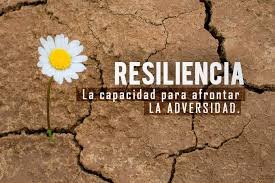Resilience
The term resilience comes from the Latin resilio meaning "to jump up"; was used by physics and engineering, understanding in the first "as the ability of a material to recover its original form after undergoing deforming pressure" (Pereira, 2007, p.2), and in the second as "the amount of energy a material can absorb, before the plastic deformation begins" (Vinaccia, Quiceno and Moreno-San Pedro, 2007, p.141).
Adapting these concepts to the social sciences; In the case of the psychological area, there is no consensual concept of what resilience is, since each author has a different idea with emphasis on different elements. It is important to specify a conceptualization of this construct, which can be done: identifying what are the common aspects in the definitions of the different authors, or differentiating the resilience of other terms with which it can be confused, such as: capacity, competence , vulnerability, hardness, strength, robustness, locus of control, resistance, recovery, coping or adaptation.
Despite this, there are several aspects in which the authors coincide when talking about resilience such as: the presence of a high-risk, traumatic or adversity environment, the successful overcoming of this situation, the possibility of strengthening oneself over time , the specificity regarding the culture and the historical moment, the relationship with the protective and risk factors; and its multidimensionality (Estefó, 2011; Robles, 2013; Sambrano, 2010; Theis, 2005).
Resilience is conceived as an active, multidimensional, individual or collective process that can be trained over time and that requires the person, group or community to be in a high risk, traumatic or adversity which is favored by being in a much better position than before; highlighting within this process the influence of the specificity of both the culture and the historical / temporal moment that intervene in the way how to act in certain situations.
And you are resilient?

